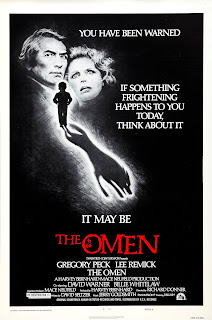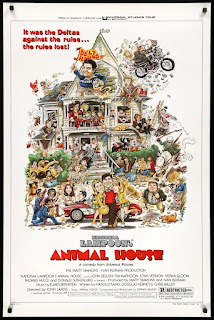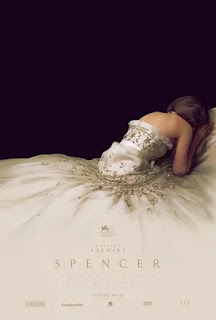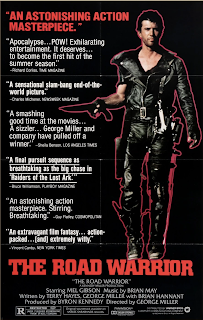The Omens
Robin Wood compared The Omen (Richard Donner, 1976) unfavorably to The Texas Chainsaw Massacre, stating that the latter "achieves the force of authentic art" (84). Of this I have no doubt. Chainsaw is an infinitely more effective horror film, genuinely terrifying if not scarring. The Omen is somehow both glossy and shoddy. Plenty of money was thrown around. But too many of the scares derive from cheap reaction shots of agitated zoo animals.
And yet I much prefer The Omen because I don't want horror to be effective. Chainsaw puts me in the position of the victim and because I would rather not be tortured and murdered (I know, right?), the experience of watching the thing is unedifying and irredeemable. By contrast, The Omen is too silly to get under my skin, the threat of a satanic child born of a jackal too far removed from reality to keep me up at night with a knife under my pillow (although the nanny hanging herself at the children's party is as nasty as any scene in Chainsaw).
Wood also avers that, "The Omen is old-fashioned, traditional, reactionary: the goodness of the family unit isn’t questioned" (79). I find that conclusion baffling since Gregory Peck (typically wooden) kicks off the story with the unforgivable act of not informing his wife (Lee Remick, picking up what I hope was a hefty paycheck) that he has replaced their dead baby with another child. If anything, that affirms the rottenness of the family unit. And they're both awful parents if the scene in which they allow the toddler Damien to wander off is any indication.
Damien: Omen II (Don Taylor, 1978) was a big disappointment if only because I recall liking it so much as a child (why was I allowed to watch it, though??). But it's pretty creaky overall despite the shocking optics of Lew Ayres, poor thing, under ice (better than over it, e.g., the dreadful Ice Follies of 1939). Omen III: The Final Conflict (Graham Baker, 1981) is the bottom of the barrel with not even a shot of Sam Neill's butt to redeem it.
The Omen: B (Clunky ad copy in the poster below, no? Sounds like something Dick Powell would've came up with in Christmas in July.)
Damien: Omen II: B-minus
Omen III: The Final Conflict: D+
P. S. I'm not watching Omen IV or any of the remakes for the foreseeable future.
Robin Wood, Hollywood From Vietnam to Reagan and Beyond, (New York: Columbia UP, 2003).
Labels: crappy films, horror, horror films















